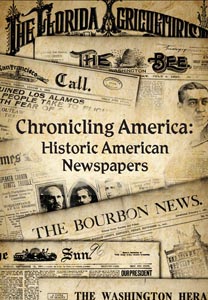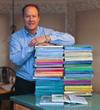Copyright © 2010 by Jordan Jones
Originally published at GenealogyMedia.com. Used by permission of the author.
Permalink: http://www.genealogymedia.com/2010/05/30/marriage-durham-co-nc/
I visited the Durham County Register of Deeds, 200 East Main Street, Durham, NC 27701-3649 to survey their marriage records. The office is quite accessible. It is in the middle of downtown Durham, with ample, reasonably priced parking in a parking structure next door. The Register of Deeds is in the basement of the old courthouse, directly across the street from the modern Durham County Government Building.
Access to the records is remarkably open. The records room is located behind the public reception area. One of the clerks lets you in to examine the records on your own. There is good light in the street-level basement where the marriage records are in open filing cabinets. A table, chairs, pencils, and scrap paper are available to researchers.
The records range from 1897 to the present. Because of institutional segregation, African-American and white marriage records are separate from 1897 until 1975. Older records are in plastic sleeves, one to a record. More recent records are in manila pouches, one per month of records.
Although Durham County was established in 1881, and most marriage records are no earlier than December 1898, the earliest marriage record in the office is a marriage certificate dated 27 Feb 1897 but recorded 30 May 1900. The certificate provides the names and ages of the bride and groom (Maggie Williams, 18, and John Mitchel, 22). It also names the father of the bride (Chas. Williams). The parents of the groom are listed as “unknown,” and the mother of the bride as “dead.” This is an African-American record, which may explain some of the gaps in information, as African-American records were not treated with equanimity at the time, and John Mitchel would have been born circa 1875, only ten years after the end of the Civil War.
The office contains only marriage certificates. It does not contain marriage licenses, marriage returns, marriage registers (more on these later), marriage bonds, marriage intentions, or consents for the marriages of minors. (The office also contains other vital records, including original death and birth records. Death certificates are available from 1991 to 2010. Previous records may be out for digitization.) Aside from the gap from 1881-1897, I did not see any gaps in the marriage records. The Family History Library has several reels of microfilmed marriage registers (FHL 812817, FHL 812818, FHL 812819, and FHL 812820, covering the marriage register volumes 1-8 from 1881-1965); the North Carolina State Archives also has these films. The Family History Library also has microfilmed records (FHL 812820) covering marriage licenses from 1898-1905, which are probably the records I was looking at, though they are called marriage certificates on the original documents.
The personnel indicate that there are no known gaps in the records. They did not know where the registers were, but said they might be at the North Carolina State Archives. While the records from 1897-2010 are all available, the index have been temporarily removed for conservation, with a planned return date of the middle of June 2010. Some of the marriage records are stamped as “Filmed by North Carolina Dept. of Archives and History.” There is also a digitization project that is intended to put the death, birth, and marriage records online within the Register of Deeds’ local network.
The records are open to the public. There appear to be no restrictions as to who can view or copy any of the records. Once I found a records I wanted to copy, the clerks directed me to a self-service copier. The copies were a reasonable $0.10 each.
More recent documents, such as the 1975 application, license and certificate of marriage for Lafayette Barnes and Catherine Estes Roberson have more detailed information about the spouses. The records add the birth dates, and not simply the ages of the parties marrying, as well as their birth places, and the birth places of their parents. The forms also include the addresses of the spouses and the addresses of their parents, if they are living and the addresses are known.
Durham County, North Carolina, Marriage Records, unnumbered certificate, 27 Feb 1897, recorded 30 May 1900. John Mitchel to Maggie Williams; Register of Deeds, Durham.
Durham County, North Carolina, Marriage Records, no. 698144, recorded 26 Dec 1975, Lafayette Barnes to Catherine Estes Roberson; Register of Deeds, Durham.




